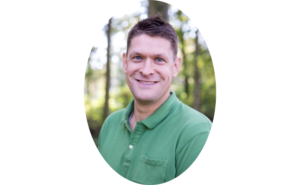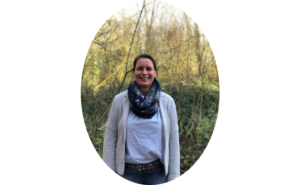Interreg VI news
Interreg VI news
INTERREG is the EU’s flagship for cross-border cooperation at regional and national level for the benefit of all EU citizens. It was launched in 1990 and has proved that borders are not obstacles. It has brought Europeans closer together by helping to tackle common challenges and creating new opportunities for cross-border cooperation.
INTERREG Germany-Netherlands is particularly committed to cross-border cooperation in the German-Dutch border region in many different topic areas. Today we present a tourism project that was realised with the help of INTERREG.

Ramon Porskamp, Projektkoordinator

Stefanie Terbeck, Projektkoordinatorin
In focus: The INTERREG project “Grenzelose Touristische Innovation 2” (Borderless Tourism Innovation 2)
The tourism sector faces major challenges. The extremely dynamic digital development is continuing and consumers expect tailor-made offers. Tourism companies and organisations must therefore respond to digital trends and innovations in their own industry, such as working with video content or influencers. The INTERREG project “Grenzenlose Touristische Innovation 2 (GTI 2)” helps entrepreneurs to establish themselves in the tourism sector by providing them with support and advice. The aim of this project is to increase the number of visitors, overnight stays and expenditure from the neighbouring country. The project partners are Stichting Gelderland Toerisme, Toerisme VAN, Stichting Achterhoek Toerisme, Marketing Oost, RBT Rivierenland, NBTC Holland Marketing and on the German side Grafschaft Bentheim Tourismus e.V., Münsterland e.V., Tourismusverband Osnabrücker Land e.V. and the EUREGIO. We spoke with the project coordinators Ramon Porskamp and Stefanie Terbeck. Together with their colleagues at the EUREGIO in Gronau and the colleagues at the project partners, they are accompanying the implementation of the project.
1. What has INTERREG made possible for the tourism sector?
Ramon Porskamp: When I started working here in 2008, the tourism sector was not yet so much concerned with the neighbouring country and its marketing. The focus was mainly on the domestic market. For example, many websites were not yet online in the language of the neighbouring country. That is quite different today.
Stefanie Terbeck: In addition, people have become more aware that the neighbouring country is a really beautiful holiday destination. You don’t necessarily have to travel far away to have a nice holiday. The Netherlands has a lot to offer Germans and vice versa.
Ramon Porskamp: I also believe that together with our Dutch and German regional partners we have changed people’s way of thinking a little. Interest in each other has increased, and the regions are also increasingly focusing their marketing activities on the neighbouring country to attract more guests.
2. What does INTERREG mean for you personally?
Stefanie Terbeck: For me personally, it means that I have got a very nice job and I can also benefit from marketing in the tourism sector. For myself I now know better how to find the beautiful places in the Netherlands. And I have also learned a new language!
Ramon Porskamp: I also learned a lot more about Germany. We are mainly concerned with tourism, recreation and its marketing, but I also learned how German organisations deal with Dutch guests and marketing and vice versa. You don’t experience that every day. We also see other very interesting ongoing projects throughout the programme, which will certainly make a useful contribution to cross-border cooperation.
3. Do you also see notice that in the current corona period more people are on holiday in the neighbouring country? If so, how can you tell?
Ramon Porskamp: We ourselves don’t notice it directly because we are not a booking service. Of course we look at the statistics and these figures now show that there is more interest in booking a holiday in the neighbouring country. Corona will certainly have played a role there, but in recent years we have also seen an increase in German holidaymakers travelling to the Netherlands to spend their holidays there. But what we can clearly see is that the number of visits to our website has increased enormously. Normally we have to invest much more in marketing to remain visible, but now people find us on their own. Even more luxurious accommodations with e.g. private sanitary facilities have become enormously popular. The term “private sanitary facilities” has really become a search term in Germany and has brought us many additional visitors online.
Stefanie Terbeck: In fact, there is reason to believe that many more people go on holiday in the neighbouring country. The figures also show that in the current corona period, Dutch and Germans often spend their holidays within a radius of 200 km from their place of residence. In the border region, you can of course quickly find yourself in the neighbouring country. In addition, many marketing campaigns have recently been launched with the message that it is once again permitted to spend holidays in the Netherlands or Germany. Grafschaft Bentheim and the city of Bentheim, for example, are active and successful in this area.
4. Could you describe an event that particularly impressed you during the project?
Ramon Porskamp: Actually, that is the situation we are in right now. We have never experienced this before and it has such an enormous impact on our industry. The entire annual planning had to be overturned because of Corona. Many preparations unfortunately seemed to have been in vain because there was no pre-season.
Stefanie Terbeck: The lockdown called our entire project into question. What we do every day, namely bringing people together across the border, was suddenly no longer possible. Marketing was no longer an option and we could no longer prepare the entrepreneurs for the season. All those network meetings for companies, where people were supposed to learn from each other, fell away. In the end, we decided to set up online workshops in order to get the best out of it and stay active. We also published inspirational articles in social media, for example. Of course very carefully and with the message to stay at home. In this way, we have embarked on a very digital journey to which we have received positive reactions. For us it was an opportunity to remain visible, but at the same time not being too inviting.
5. What opportunities for cross-border cooperation in the tourism sector can still be exploited in the future?
Stefanie Terbeck: One challenge for the future is to ensure that companies stay in contact with each other. We then give them the initial impetus and ensure that they find each other and can then continue their cooperation independently. But I can see that there is still a need for companies to have a central contact point to help with advice, training and questions about digitisation. Above all, there is also a great need for training on the neighbouring market, that we organise as well.
Ramon Porskamp: Yes, then you quickly realise that it is necessary to have a superior party that looks beyond regional, provincial and national borders and connects them. One example of this is the meetings of the so-called route agencies. When route networks are developed, more and more attention is paid to whether and how they can be connected to the network in the neighbouring country. In Münsterland, for example, currently progresses have been made to set up a bicycle junction system that connects to the Dutch system in Twente and on the Achterhoek. But what happens if something changes in this network at the border? Are signs and signposts in digital route planners automatically adapted? Sometimes it’s just a matter of letting each other know what you are doing.